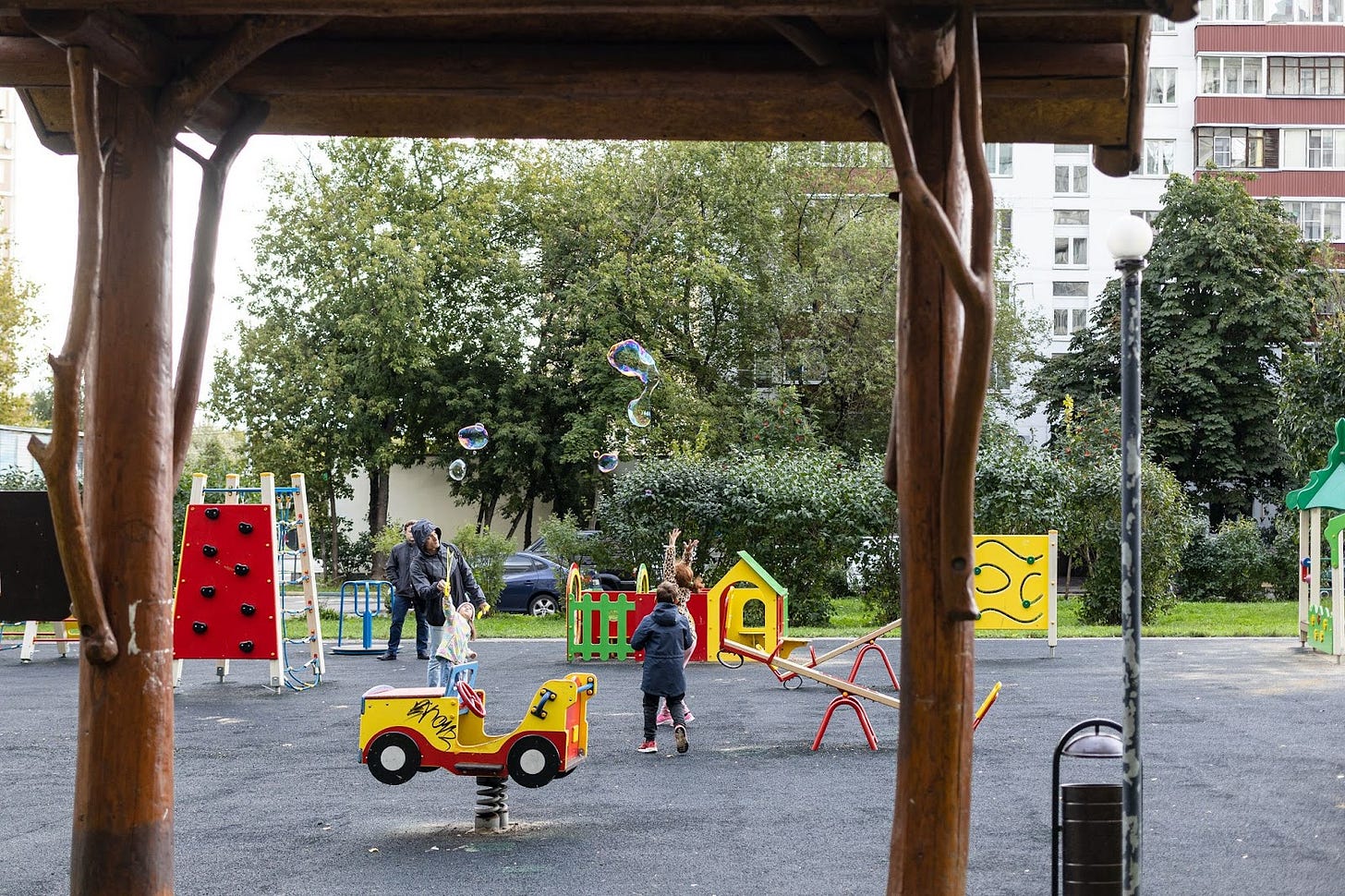In April, I had the great privilege of hearing 8 80 Cities founder Gil Penalosa speak about his organization and what he has in mind for the future of cities. 8 80 Cities is a non-profit that consults cities across the globe—over 350 in the past ten years—on their efforts to build more people-centered places. People-centered, under their philosophy, refers to all people. As their name suggests, a city built for people under eight years-old and over eighty is a city anyone can access, work within, and contribute to.
Penalosa exhibits the energy of a man who spends his ideating moments appealing to the playful sensitivities of children. His lecture filled an hour and a half with what could have been a semester’s worth of content, clicking calmly but rapidly through an eight-hundred-plus slide deck that paired a picture with nearly every word.
Penalosa is passionate about his work but like any great ideasman, is also openly critical of past wrongs. A community member asked if he had tips for organizing an open streets biking event like the “Ciclovia” he initiated while the commissioner of parks and recreation for the city of Bogotá. “Don’t put ‘bike’ in the name,” he said. Folks will still bring bikes and enjoy the opportunity to ride their bikes freely, he explained, but focusing on biking may dissuade possible attendees. A true open-street event should be just that: open to all uses, all ages, and all people.
Penalosa’s plan for cities is compelling because of its universal appeal. An urban policy agenda that focuses on naturally supporting the most vulnerable—and likewise serving everyone else—is a position the right and left, citizens and developers, small and big cities can get behind. In May, fellow at the American Enterprise Institute and author Timothy Carney published a new book, Family Unfriendly: How Our Culture Made Raising Kids Harder Than It Needs to Be, in which he advocates for a similar mission while taking a pro-family stance.
Carney isn’t the only scholar currently questioning the state of American parenting. On the left, Ezra Klein recently interviewed Caitlyn Collins, sociologist and author of “Making Motherhood Work: How Women Manage Careers and Caregiving,” to talk about how the birthrate in America is falling, and how the current culture around parenting has contributed to this phenomenon for better and worse. Increased female autonomy accounts for much of the fall, and likewise, discussions of lowering birth rates can seem outdated: isn’t this progress? Why worry if fewer women are starting families and instead starting careers? Why are we talking about birth rates, again?
The problem that Carney identifies is not just that fewer adults are starting families, but that fewer adults feel it is possible to both raise a family and live a happy life. The mental image of the hurried parent shuttling their child from piano lessons to their friend’s house to soccer practice is not an inviting one. And the problem, he describes, is not just cultural. It is also a matter of our built environment.
When home prices weren’t inflated by constricted supply, when small lot starter homes were legal to build and abundant, when schools were around the corner, not zoned to the edge of cities where traffic wouldn’t bother anyone, and when sending children down the street to play when a parent needed to tend to other tasks was the norm, parenting was that much simpler.
In other words, pro-family urbanism is having a moment. The term, like pro-family policy, may put folks on both sides of the aisle, worried about government intervention in matters like marriage and child-rearing, on edge. To give it a definition, pro-family urbanism is a method of city-building that supports the raising of a person, and in doing so lessens, rather than worsens, the burdens of raising a family. Essentially, it is the 8 80 city. It is building a city in which both the child and the grandparent can grow and thrive and experience life-giving independence.
Adeleine Geitner is a rising senior at Duke University studying public policy and economics. She is the Duke Urban Studies Initiative Fellow on Sprawl Repair and Nodal Development.



